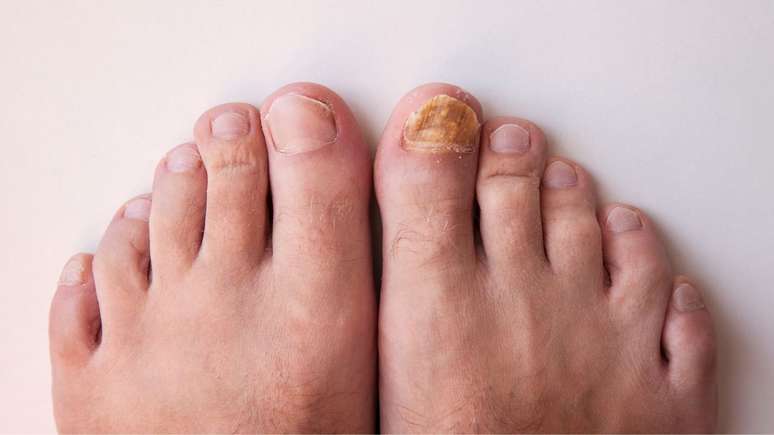Keeping your nails short, clean and dry helps prevent and fight fungal infections in the area.
Ringworm is a problem that affects three out of ten Brazilians, according to a study by the National Observatory of Onychomycosis. The condition is the result of a fungal infection, developed due to exposure to humid environments, lack of proper hygiene, or contact with contagious fungi.
In this scenario, taking precautionary measures is essential. Unhas Cariocas beauty specialist Marina Groke says that it is essential to add steps to your nail care routine to prevent this type of condition. Below, she reveals what precautions help prevent the development of fungal infections and ensure the health of your nails.
Keep your nails dry and clean
It is essential to dry the nails thoroughly after contact with water to avoid an environment conducive to fungal growth. This includes thoroughly drying between the toes, where moisture can become trapped.
Use gloves when handling cleaning products
Protecting your nails with gloves during cleaning activities helps prevent damage from harsh chemicals and reduces the risk of skin irritation around your nails.
Cut your nails properly
Cutting your nails straight across and not too short helps prevent ingrown toenails, which can lead to nail infections. It is worth remembering that keeping them well-trimmed also promotes a healthy appearance.
Moisturize your cuticles regularly
Applying moisturizing creams or oils to your cuticles not only keeps them flexible, but also plays a vital role in the overall health of your nails. Regular moisturizing helps strengthen your nails’ natural protective barrier, which is essential for preventing cracks and splits. Dry, brittle nails are not only more susceptible to physical damage, but they also provide a favorable environment for fungus and bacteria to thrive.
Oils help treat the condition
There are some oils that can also help in the treatment of ringworm, such as tea tree oil and clove oil. They have an antiseptic and antibacterial action, which acts locally and helps fight infections.
Tea tree oil is widely recognized for its antifungal and antibacterial properties. It helps fight fungi that can cause nail infections, providing a natural protective layer against pathogens, but can also be used as part of preventative treatments.
Clove oil is known for its antiseptic and healing properties. Using it regularly helps strengthen nails and prevent infections. The component is effective against bacteria and fungi, acting as a protective barrier that can be especially useful in environments prone to the proliferation of microorganisms.
“These compounds help strengthen nails and improve their overall health by providing a protective barrier against pathogens. This treatment helps keep nails healthier and more beautiful in the long term,” concludes Marina Groke.
Source: Terra
Ben Stock is a lifestyle journalist and author at Gossipify. He writes about topics such as health, wellness, travel, food and home decor. He provides practical advice and inspiration to improve well-being, keeps readers up to date with latest lifestyle news and trends, known for his engaging writing style, in-depth analysis and unique perspectives.








